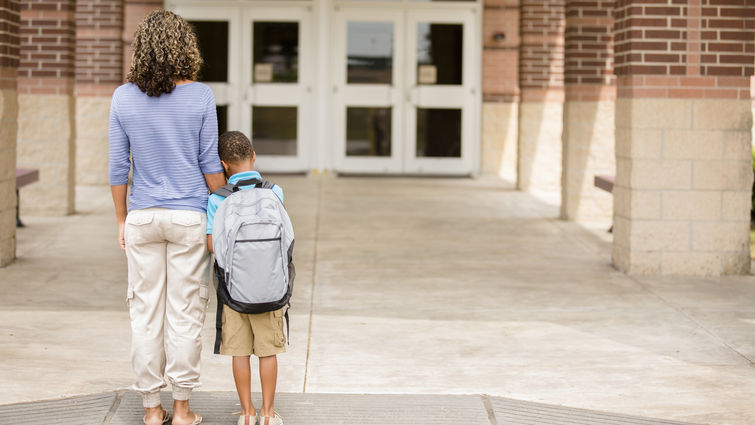
The stress of going back to school can affect parents and children equally. Persistent anxiety symptoms in children may require professional help, according to Jennifer Minami, MD, child psychiatrist for the Loma Linda Behavioral Health Tranquility program.
Separation anxiety is common and developmentally appropriate for very young child, and it may be increasing in school-age children, Minami says. Two years of school closures, in-home isolation, and work-from-home scenarios have increased the level of attention children receive from parents and have impacted some parents' anxieties as well.
She suggests that parents need to manage their child’s as well as their own behavior and feelings about the return to school.
Whether this is your first time sending a child to school, or anxieties grew after a long summer break, Minami provides these tips for anxious parents and children.
Tips for managing a child’s behavior and feelings:
- Normalize your child’s back-to-school anxieties.
- Coach and encourage them by jointly recalling when they successfully faced similar fears.
- Jointly select a small way you will “celebrate” their getting through the first day and week of school.
Tips for managing parents’ own behavior and feelings:
While many parents may look forward to the start of the new school year, others may have concerns about this transition. “If parents have their own anxieties about sending their children to school, it can become difficult for them to support their children when they are in distress about this,” Minami says.
- Check-in with yourself to identify your own anxieties about sending your child to school.
- Do what you can to relieve your own anxiety about back-to-school. Talk to your partner, family, friends, or other parents.
“Separation anxiety can be hard for parents to see in their children. To diminish their child’s distress, many parents engage in ‘rescue behavior’. For example, parents might allow their child to sleep close to them or stay home from school if it seems too overwhelming. In the long run, this approach typically worsens the child's anxieties” Minami says.
In the Tranquility program, Minami and her team approach the treatment of pediatric anxiety with components that work with children and their parents. The program provides mental health treatment for children with anxiety ages 8 to 11 years old. The short-term intensive program provides more than six hours of clinical contact per week for up to eight weeks. Children referred to the Tranquility program have anxiety that impacts their daily lives in the home and in school settings.
Children in the program learn how to identify when they are feeling anxious, use skills to face their anxieties, and reward themselves for progress made.
Parents learn how to support their children to use skills at home and manage their anxieties that may come up as they encourage their children to progress through the exercises in the program.
“Fear and anxiety are natural responses to scary things,” Minami says. “Parents are in the position to set the tone for how their children navigate the world and respond to the environment around them.”
Loma Linda Behavioral Health is here to help you restore hope and harmony in your child’s life. Learn more about the Youth Mental Health programs or request more information here.
